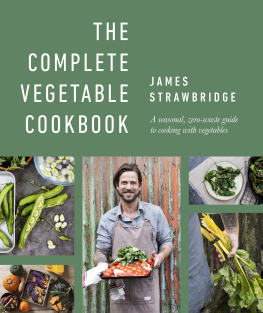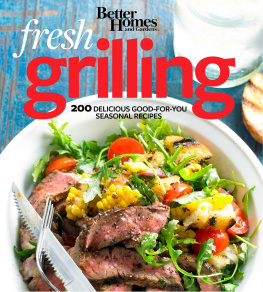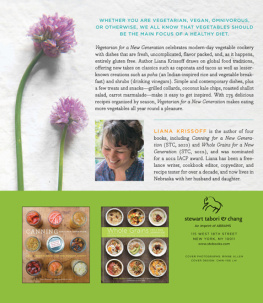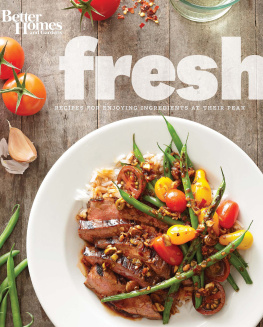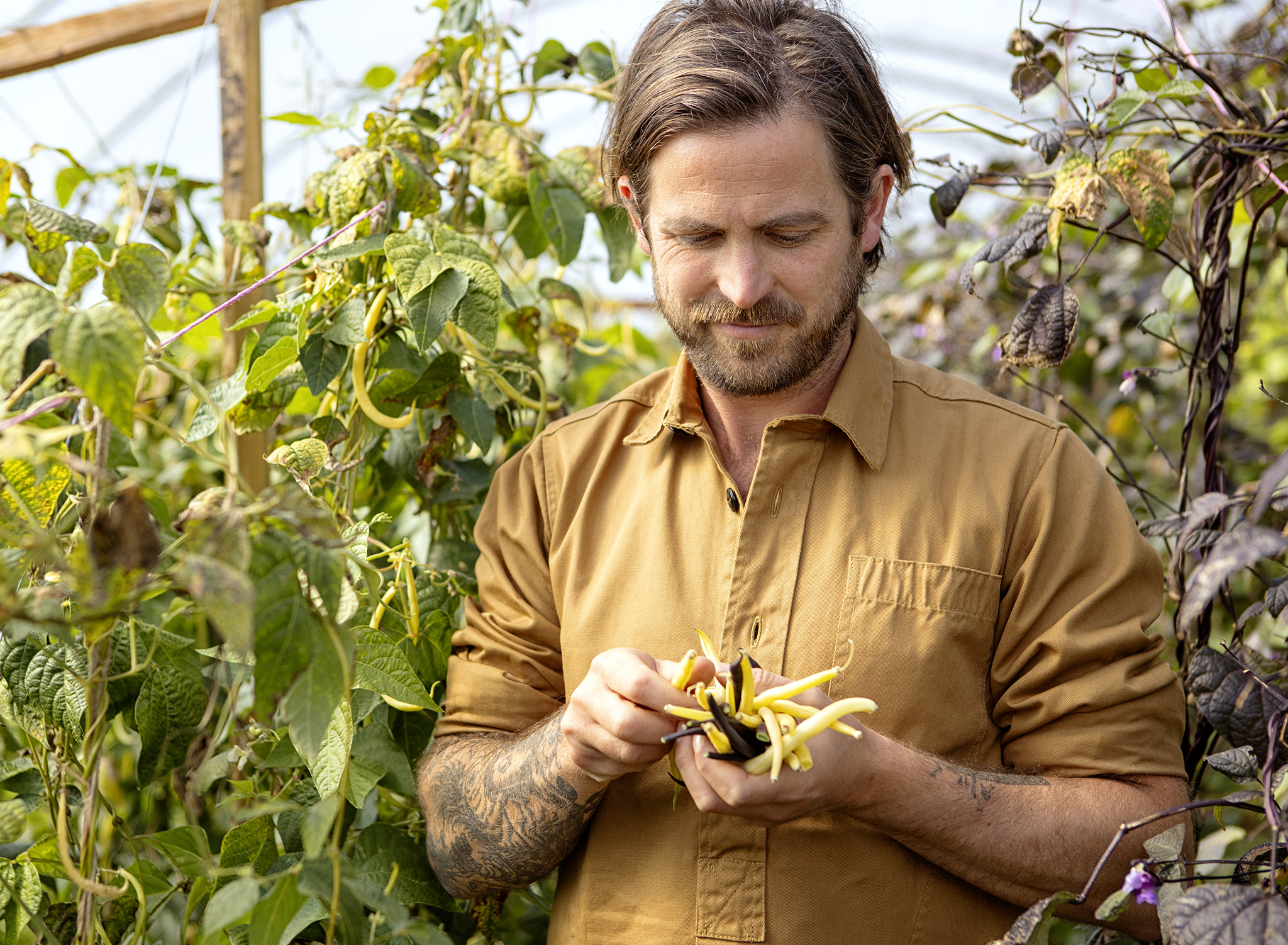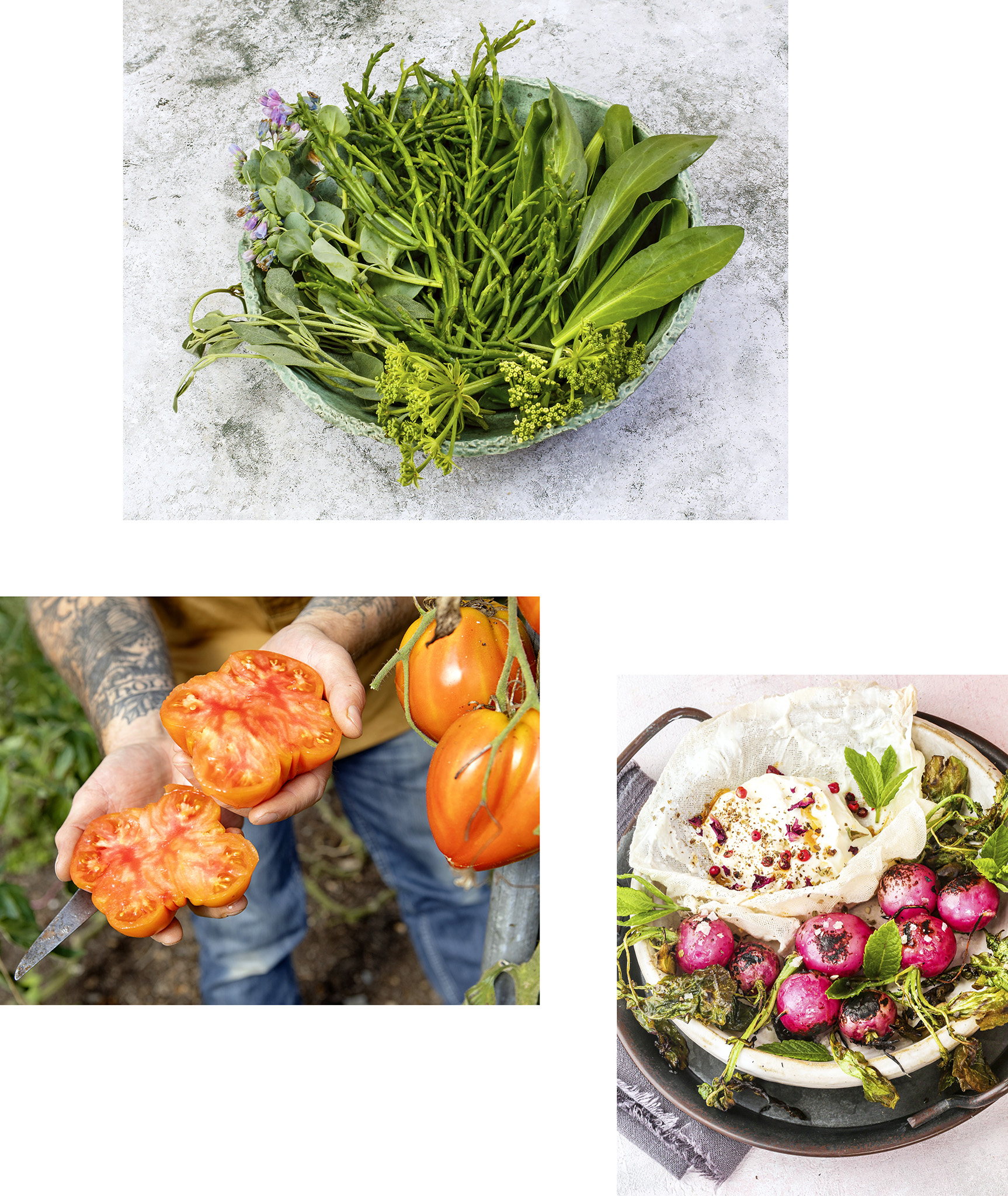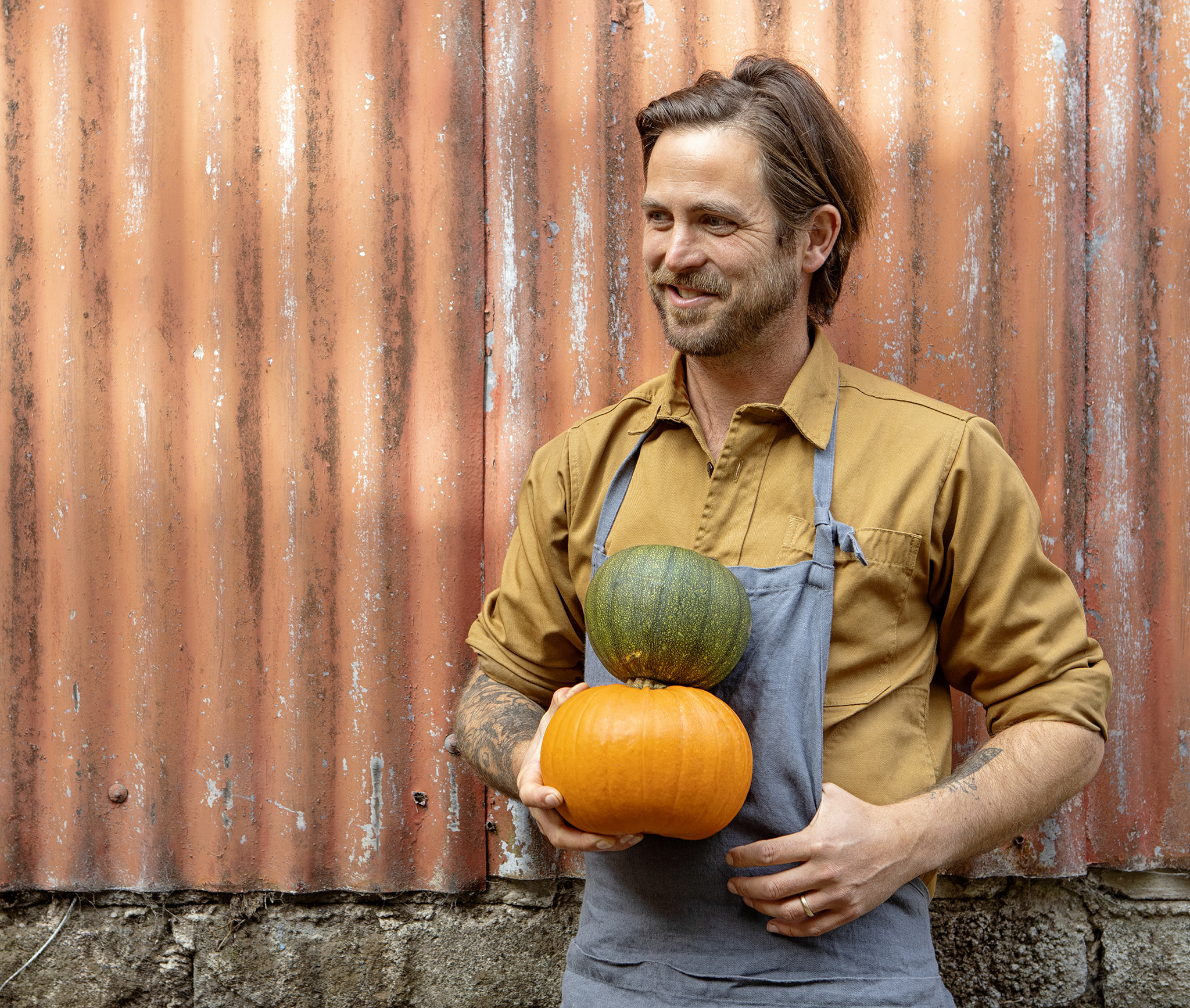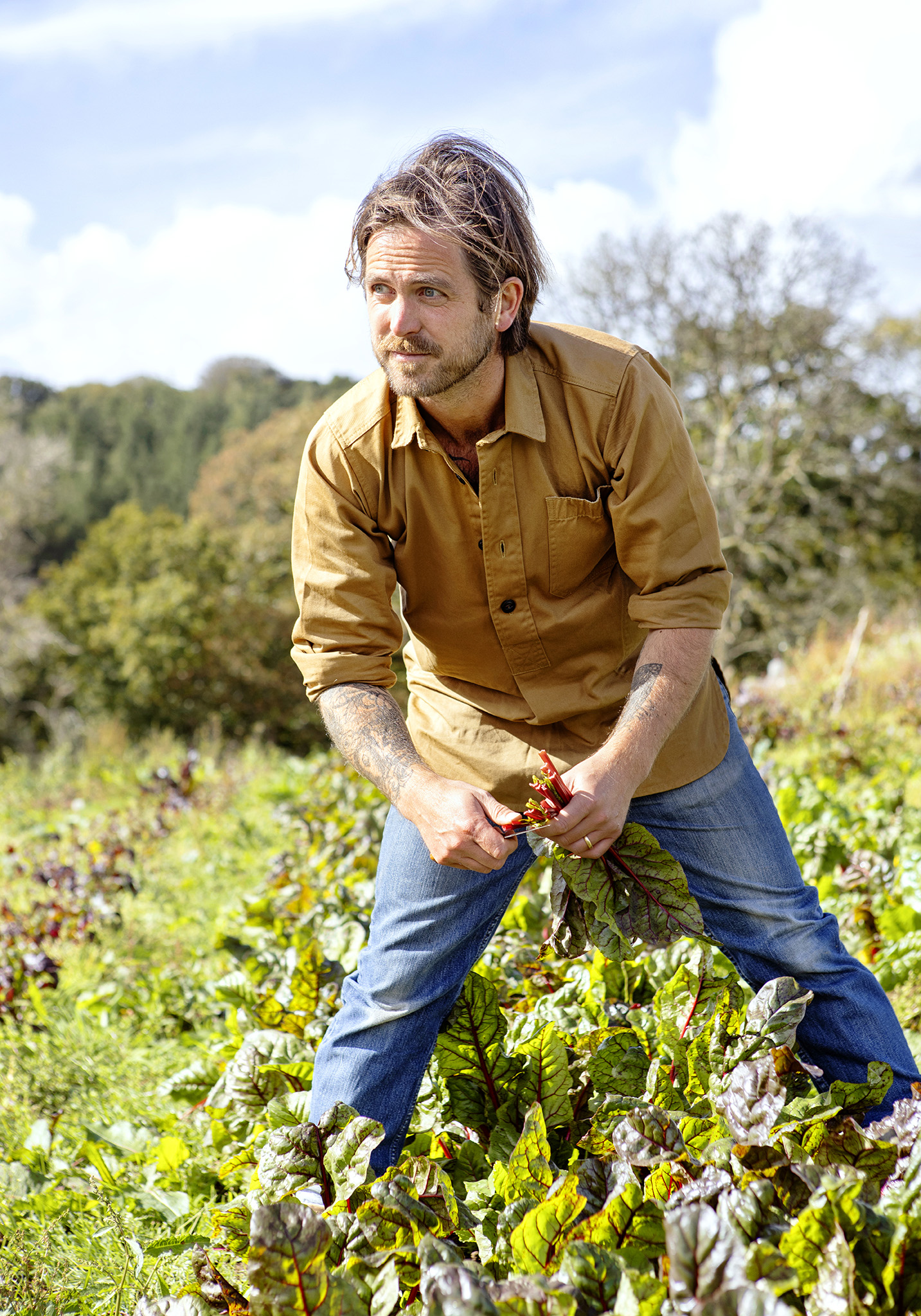Introduction
I started to really love veg cookery when I left school and was living a self-sufficient lifestyle with my family in Cornwall. We were growing almost all of our own food on a smallholding and the responsibility to do the veg justice once harvested was huge. Taking it in turns to cook our vegetables was a daily challenge and a source of great enjoyment, with a fun competitive edge. I learnt many lessons along the way and was forced to become a creative chef by necessity as keen gardeners will know, when faced with a glut, you need to think outside the box and come up with fresh recipes each week to avoid veg fatigue. The same challenge faces many of us who order a veg box or try to eat seasonally.
Today, lots of people are aiming to improve their diet and reduce their impact on the planet by living more sustainably. And increasing the proportion of vegetables you eat is one of the most effective ways to do both. The health and eco benefits are matched by rewarding culinary experiences. Vegetables are utterly delicious and whatever your motivation is for eating more of them, I hope this book provides you with plenty of creative ideas. My aim is to revitalise your veg cookery and broaden your repertoire of recipes, and also to share culinary tips and information about zero-waste cooking. Some dishes have been handed down the generations; others, Ive tasted when travelling and replicated at home, or invented out of necessity. They all enliven my senses. This book is not a vegetable manifesto. Its more a celebration of veg intended to inspire and enthuse. If youre not smiling, you are doing it wrong!
RELAX AT THE DINNER TABLE
Ive inherited an approach to food heavily inspired by my mum and dad, who fed our family good, home-cooked food when I was young, and I try to instil that same from-scratch approach in my children. I do feel that a strong awareness of the environmental impact of our food is essential to bring about change across our society. So we express gratitude for each meal and take the time to enjoy eating together whenever we can.
This slowing down at the table and the removal of processed foods from your diet makes a huge difference to how you feel after eating. Even the notion of taking time to digest, talk, and catch up over a meal is a ritual that has been lost from many family dinner tables. I hope that these dishes brighten your mealtimes and make them a welcoming, communal experience for your family and friends. Nowadays, the lines between vegan, vegetarian, and flexitarian have become more blurred and I think that is a positive. We are less judgemental about who eats what and therefore its no longer an odd thing to say proudly, I love eating vegetables. Good food should always be shared and appreciated with an open heart.
DEVELOP YOUR SKILLS
To create delicious recipes, you need great ingredients and a set of basic skills. Ive provided a range of my favourite methods in the Ways with Veg section. Try to reinforce your kitchen confidence by practising lots, and once youve got a good grip on a particular vegetable, never be shy about experimenting. To regain the love of cooking and eating veg, which is especially important if youve been put off certain vegetables as a child due to soggy school meals or overcooked dinners, start with the basics and then gradually get more adventurous. Most veg is extremely forgiving once youve mastered the basic preparation. Try unusual ingredients together and make up your own flavour combinations. Be innovative and brave have fun and unleash your inner veg chef!
EMBRACE ZERO WASTE
Often vegetables are sold with their roots and tops removed, wrapped in plastic, and sometimes even pre-chopped in a single-use bag. This disconnect from how veg is pulled from the ground is tragic. We have lost so much knowledge of how to help raw veg on its journey from fork to plate. In a bid to get food thats quicker to prepare, easier to chop, or that simply fits in the fridge more compactly, we throw away and waste so many valuable parts of the plant. I hope that by looking at each vegetable closely and suggesting ways to cook the tops, peel, roots, and shoots, I can help you reduce food waste and make nutrient-packed meals in the process. Zero-waste cookery is a mindset and once you embrace it, you will find yourself constantly seeking new ways to use all the edible parts. This is not a new style of cooking; its inspired by the past. Cooks used to be more thrifty with their food, making their own stocks and sauces, and using all of the vegetable to deliver extra flavour. With greater convenience have come complacency and such horrendous waste. Together we can reverse this culinary trend and all do our small part to achieve a zero-waste future. Itll take a long time and plenty of carrot-top pesto and root-peel crisps, but I hope this approach will soon become standard kitchen practice again, a habit we have all formed, rather than something we have to tell ourselves to do.
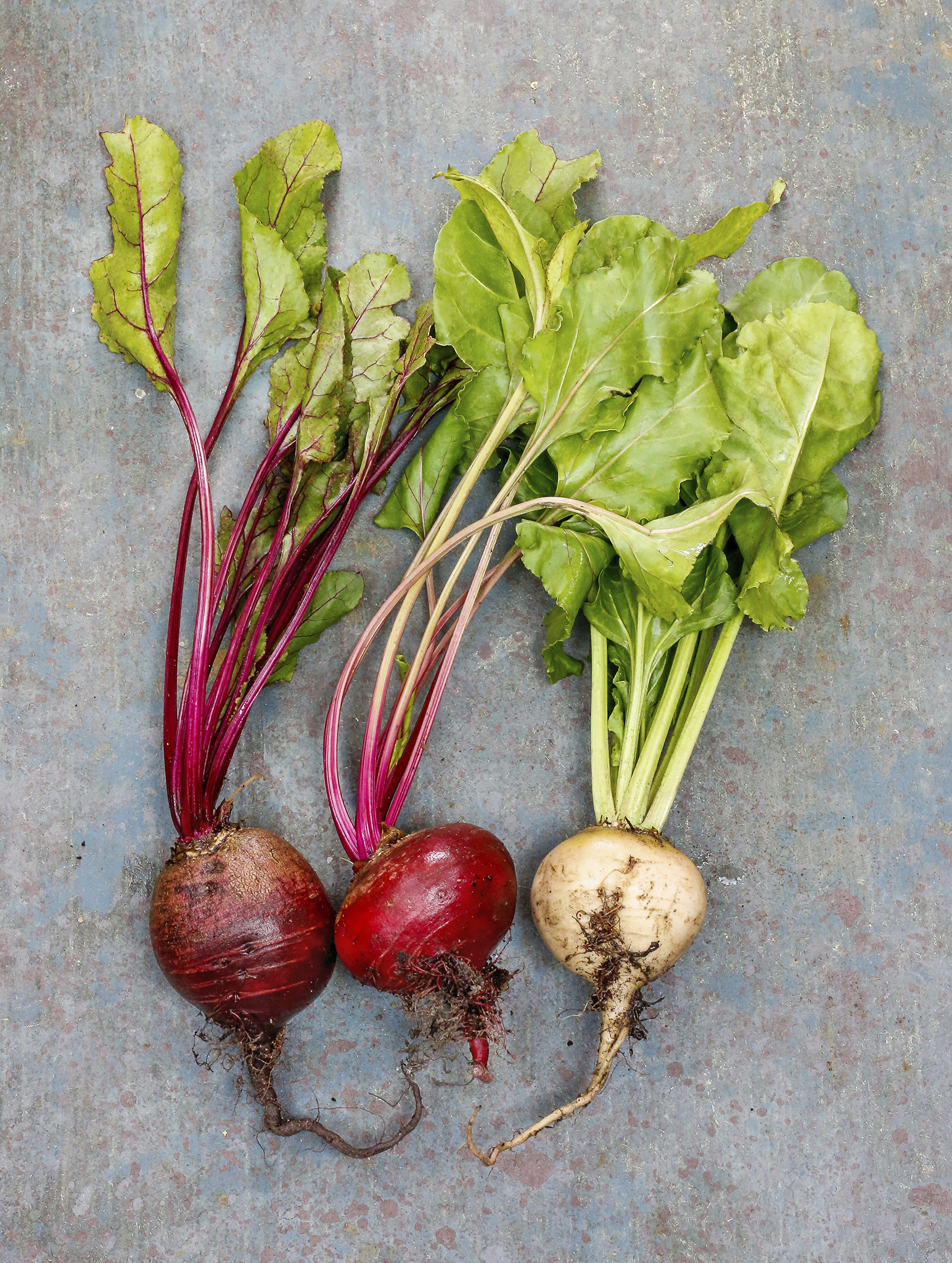
SEASONALITY
Eating food thats in season is a way of life, rather than just a way of cooking. It involves a patient world view that celebrates what we have in the moment, rather than looking over the horizon and wanting more. Weve grown accustomed to the global movement of ingredients, so we are sold asparagus in September or tomatoes in January, when they are not in season. This crazy availability of vegetables all year round has removed the simple joy you get from waiting for something to grow, mature, and ripen, ready to eat. We are all responsible for this lapse, having been suckered into the intoxicating array of veg you can buy all year round, and its going to take years of adapting back to a more seasonal way of cooking. But from my perspective, it is worth persevering with, because the taste and flavour of local, seasonal vegetables cannot be beaten. I love eating braised cabbage in winter, or spicy stuffed peppers in the summer. This outlook on food also represents a simpler way of cooking thats focussed closer to home and feels more supportive of our local community and the wider environment. Fundamentally, seasonal vegetables taste better, are better for the planet, and give your body more of the nutrients you need to be healthy its a no-brainer.

